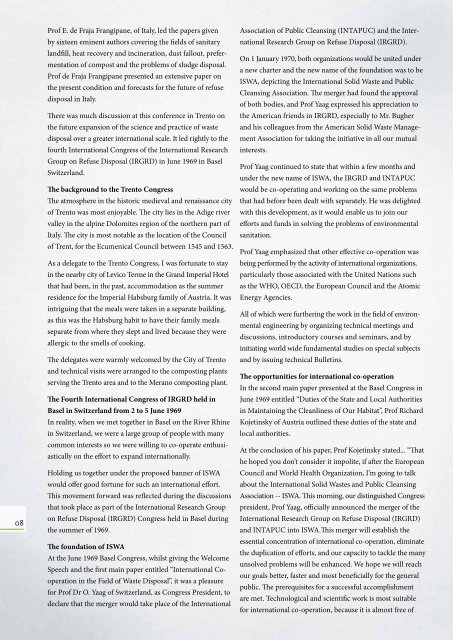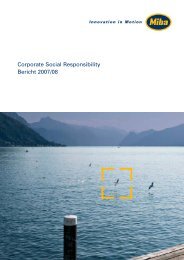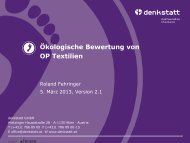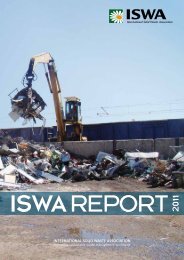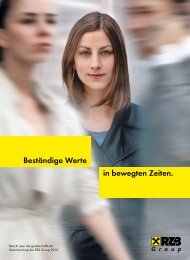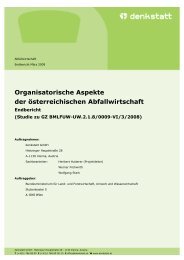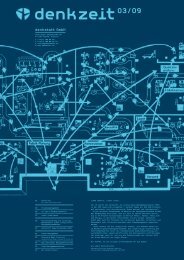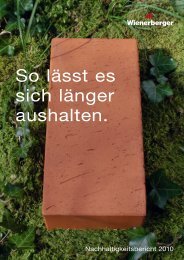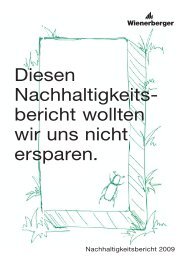INTERNATIONAL SOLID WASTE ASSOCIATION - Denkstatt
INTERNATIONAL SOLID WASTE ASSOCIATION - Denkstatt
INTERNATIONAL SOLID WASTE ASSOCIATION - Denkstatt
Create successful ePaper yourself
Turn your PDF publications into a flip-book with our unique Google optimized e-Paper software.
08<br />
Prof E. de Fraja Frangipane, of Italy, led the papers given<br />
by sixteen eminent authors covering the fields of sanitary<br />
landfill, heat recovery and incineration, dust fallout, prefermentation<br />
of compost and the problems of sludge disposal.<br />
Prof de Fraja Frangipane presented an extensive paper on<br />
the present condition and forecasts for the future of refuse<br />
disposal in Italy.<br />
There was much discussion at this conference in Trento on<br />
the future expansion of the science and practice of waste<br />
disposal over a greater international scale. It led rightly to the<br />
fourth International Congress of the International Research<br />
Group on Refuse Disposal (IRGRD) in June 1969 in Basel<br />
Switzerland.<br />
The background to the Trento Congress<br />
The atmosphere in the historic medieval and renaissance city<br />
of Trento was most enjoyable. The city lies in the Adige river<br />
valley in the alpine Dolomites region of the northern part of<br />
Italy. The city is most notable as the location of the Council<br />
of Trent, for the Ecumenical Council between 1545 and 1563.<br />
As a delegate to the Trento Congress, I was fortunate to stay<br />
in the nearby city of Levico Terme in the Grand Imperial Hotel<br />
that had been, in the past, accommodation as the summer<br />
residence for the Imperial Habsburg family of Austria. It was<br />
intriguing that the meals were taken in a separate building,<br />
as this was the Habsburg habit to have their family meals<br />
separate from where they slept and lived because they were<br />
allergic to the smells of cooking.<br />
The delegates were warmly welcomed by the City of Trento<br />
and technical visits were arranged to the composting plants<br />
serving the Trento area and to the Merano composting plant.<br />
The Fourth International Congress of IRGRD held in<br />
Basel in Switzerland from 2 to 5 June 1969<br />
In reality, when we met together in Basel on the River Rhine<br />
in Switzerland, we were a large group of people with many<br />
common interests so we were willing to co-operate enthusiastically<br />
on the effort to expand internationally.<br />
Holding us together under the proposed banner of ISWA<br />
would offer good fortune for such an international effort.<br />
This movement forward was reflected during the discussions<br />
that took place as part of the International Research Group<br />
on Refuse Disposal (IRGRD) Congress held in Basel during<br />
the summer of 1969.<br />
The foundation of ISWA<br />
At the June 1969 Basel Congress, whilst giving the Welcome<br />
Speech and the first main paper entitled “International Cooperation<br />
in the Field of Waste Disposal”, it was a pleasure<br />
for Prof Dr O. Yaag of Switzerland, as Congress President, to<br />
declare that the merger would take place of the International<br />
Association of Public Cleansing (INTAPUC) and the International<br />
Research Group on Refuse Disposal (IRGRD).<br />
On 1 January 1970, both organizations would be united under<br />
a new charter and the new name of the foundation was to be<br />
ISWA, depicting the International Solid Waste and Public<br />
Cleansing Association. The merger had found the approval<br />
of both bodies, and Prof Yaag expressed his appreciation to<br />
the American friends in IRGRD, especially to Mr. Bugher<br />
and his colleagues from the American Solid Waste Management<br />
Association for taking the initiative in all our mutual<br />
interests.<br />
Prof Yaag continued to state that within a few months and<br />
under the new name of ISWA, the IRGRD and INTAPUC<br />
would be co-operating and working on the same problems<br />
that had before been dealt with separately. He was delighted<br />
with this development, as it would enable us to join our<br />
efforts and funds in solving the problems of environmental<br />
sanitation.<br />
Prof Yaag emphasized that other effective co-operation was<br />
being performed by the activity of international organizations,<br />
particularly those associated with the United Nations such<br />
as the WHO, OECD, the European Council and the Atomic<br />
Energy Agencies.<br />
All of which were furthering the work in the field of environmental<br />
engineering by organizing technical meetings and<br />
discussions, introductory courses and seminars, and by<br />
initiating world wide fundamental studies on special subjects<br />
and by issuing technical Bulletins.<br />
The opportunities for international co-operation<br />
In the second main paper presented at the Basel Congress in<br />
June 1969 entitled “Duties of the State and Local Authorities<br />
in Maintaining the Cleanliness of Our Habitat”, Prof Richard<br />
Kojetinsky of Austria outlined these duties of the state and<br />
local authorities.<br />
At the conclusion of his paper, Prof Kojetinsky stated... “That<br />
he hoped you don’t consider it impolite, if after the European<br />
Council and World Health Organization, I’m going to talk<br />
about the International Solid Wastes and Public Cleansing<br />
Association -- ISWA. This morning, our distinguished Congress<br />
president, Prof Yaag, officially announced the merger of the<br />
International Research Group on Refuse Disposal (IRGRD)<br />
and INTAPUC into ISWA.This merger will establish the<br />
essential concentration of international co-operation, eliminate<br />
the duplication of efforts, and our capacity to tackle the many<br />
unsolved problems will be enhanced. We hope we will reach<br />
our goals better, faster and most beneficially for the general<br />
public. The prerequisites for a successful accomplishment<br />
are met. Technological and scientific work is most suitable<br />
for international co-operation, because it is almost free of


